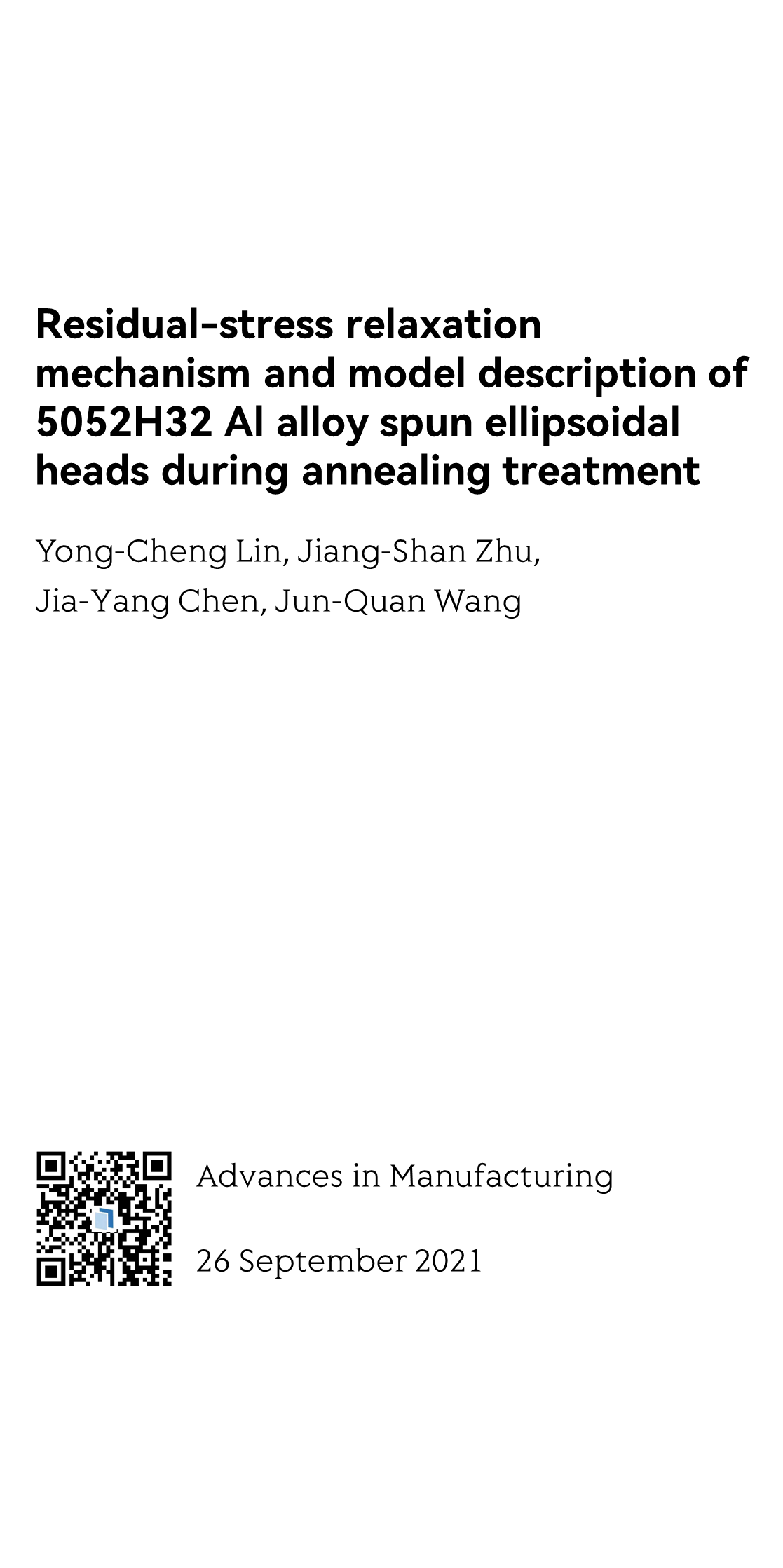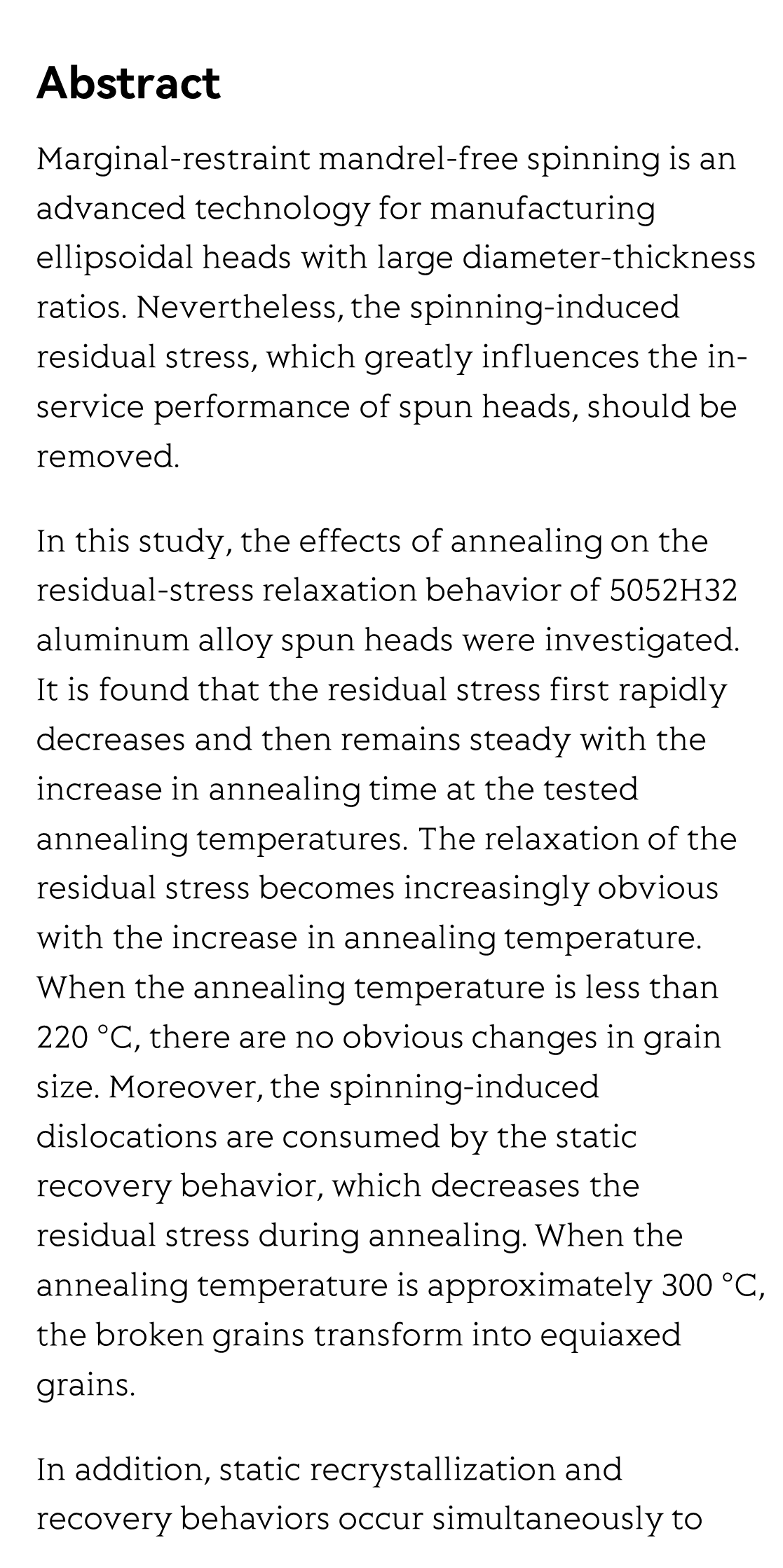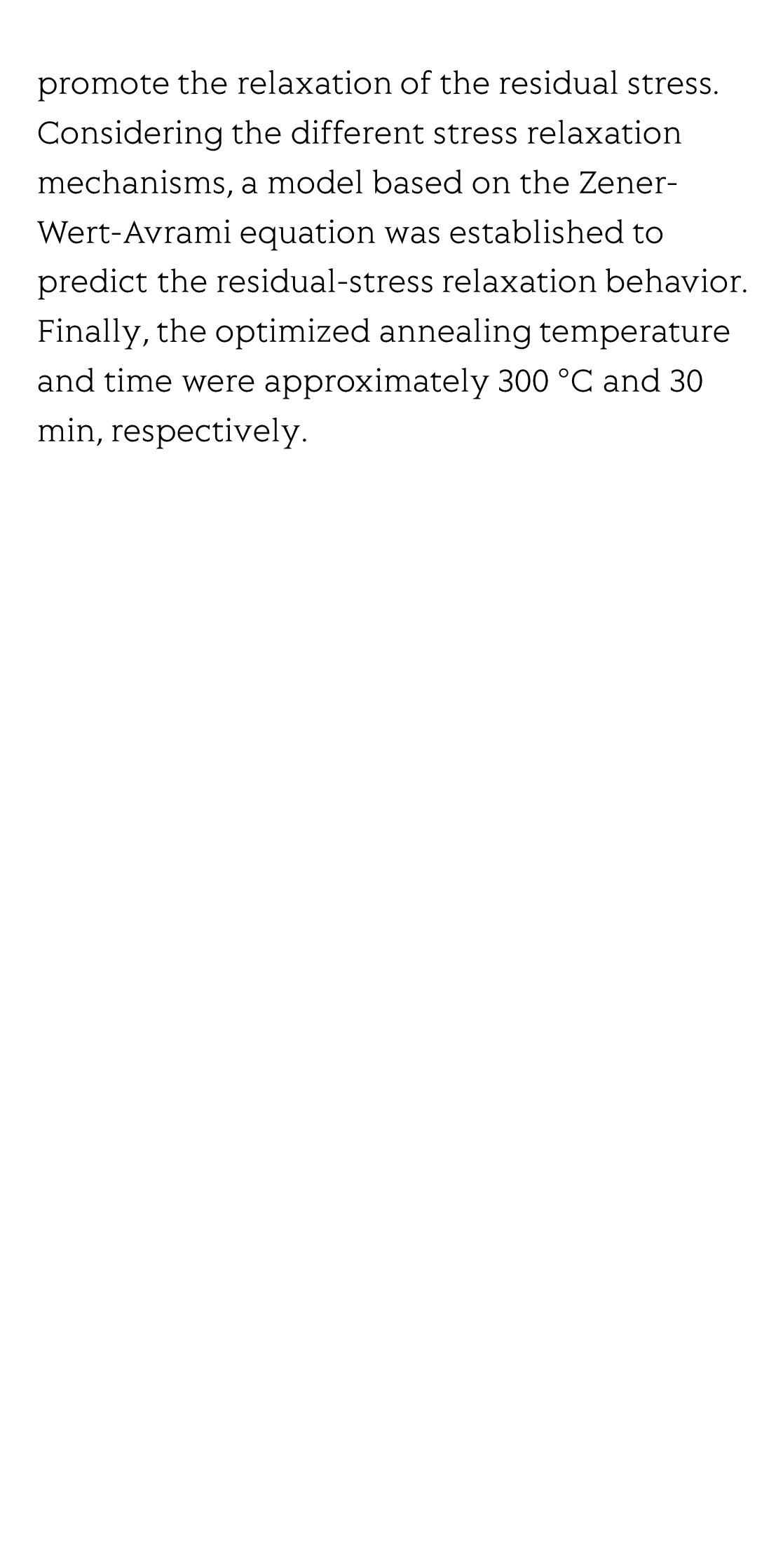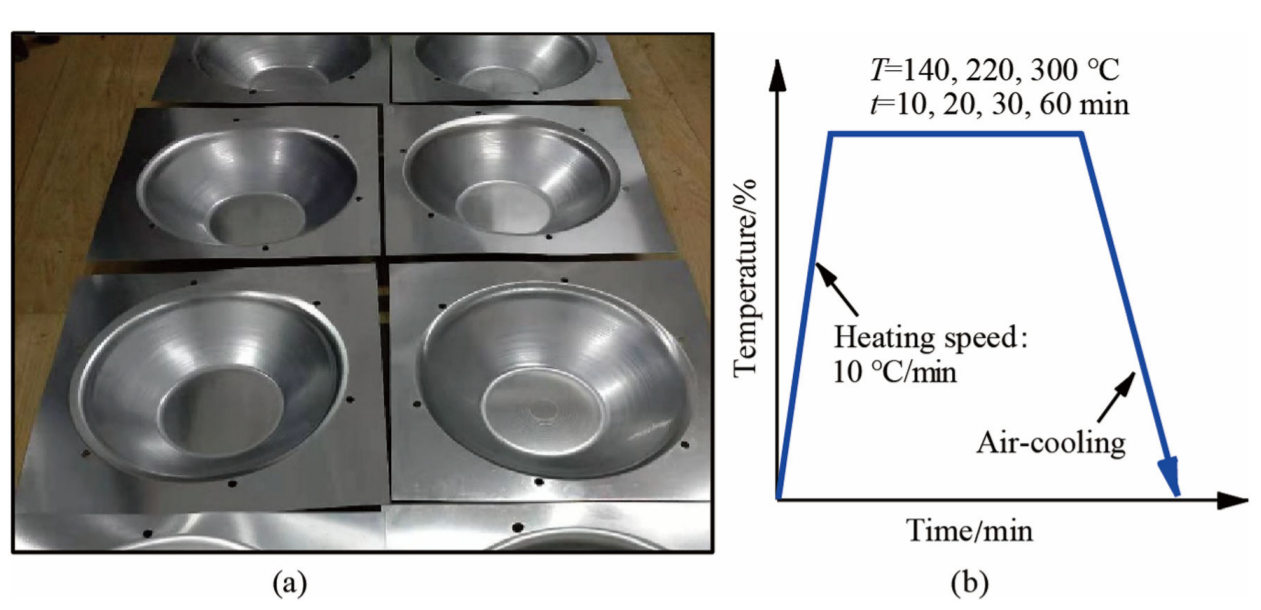(Peer-Reviewed) Residual-stress relaxation mechanism and model description of 5052H32 Al alloy spun ellipsoidal heads during annealing treatment
Yong-Cheng Lin 蔺永诚, Jiang-Shan Zhu 朱江山, Jia-Yang Chen, Jun-Quan Wang
School of Mechanical and Electrical Engineering, Central South University, Changsha, 410083, People's Republic of China
中国 长沙 中南大学机电工程学院
Abstract
Marginal-restraint mandrel-free spinning is an advanced technology for manufacturing ellipsoidal heads with large diameter-thickness ratios. Nevertheless, the spinning-induced residual stress, which greatly influences the in-service performance of spun heads, should be removed.
In this study, the effects of annealing on the residual-stress relaxation behavior of 5052H32 aluminum alloy spun heads were investigated. It is found that the residual stress first rapidly decreases and then remains steady with the increase in annealing time at the tested annealing temperatures. The relaxation of the residual stress becomes increasingly obvious with the increase in annealing temperature. When the annealing temperature is less than 220 °C, there are no obvious changes in grain size. Moreover, the spinning-induced dislocations are consumed by the static recovery behavior, which decreases the residual stress during annealing. When the annealing temperature is approximately 300 °C, the broken grains transform into equiaxed grains.
In addition, static recrystallization and recovery behaviors occur simultaneously to promote the relaxation of the residual stress. Considering the different stress relaxation mechanisms, a model based on the Zener-Wert-Avrami equation was established to predict the residual-stress relaxation behavior. Finally, the optimized annealing temperature and time were approximately 300 °C and 30 min, respectively.
High-resolution tumor marker detection based on microwave photonics demodulated dual wavelength fiber laser sensor
Jie Hu, Weihao Lin, Liyang Shao, Chenlong Xue, Fang Zhao, Dongrui Xiao, Yang Ran, Yue Meng, Panpan He, Zhiguang Yu, Jinna Chen, Perry Ping Shum
Opto-Electronic Advances
2024-12-16
Ultra-high-Q photonic crystal nanobeam cavity for etchless lithium niobate on insulator (LNOI) platform
Zhi Jiang, Cizhe Fang, Xu Ran, Yu Gao, Ruiqing Wang, Jianguo Wang, Danyang Yao, Xuetao Gan, Yan Liu, Yue Hao, Genquan Han
Opto-Electronic Advances
2024-10-31







